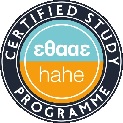Welcome to the 7th issue of i-MBA SCOPE! Over the last year, since its appearance in the city of Wuhan in December 2019, the new corona virus, which frightenedly rapidly evolved into the COVID-19 pandemic, has overturned the fundaments of how we live, work, interact and communicate. No human activity and virtually no place on earth inhabited by humans have remained unaffected.
As a business school and MBA program, AUEB and the i-MBA transferred its educational and other activities to an online mode almost immediately when the first lock-down was imposed, with universities closing on March 11th. This has of course not been without difficulty. Teaching online, and learning online, requires adaptation, preparation and training.
Challenges for business have also been and continue to be tremendous. In the second part of this editorial, I briefly present some findings from a survey among the i-MBA students concerning the challenges that the pandemic has brought to their companies and to their jobs.
In this issue we further publish three articles relate to the COVID-19 pandemic. In the first, Angeliki Katsapi, International Assessor of Healthcare Accreditation and Vice Chair of Temos International Assessors Board, discusses and exemplifies the importance of regulatory and quality compliance as the baseline for sustainable and effective business functions.
The second article, by Lefteris Kioses, Chief Research Officer, the Research Institute of Retail Consumer Goods (IELKA) and i-MBA Alumnus class of 2005, provides insights about the new retail era. In the third article, Serafeim Karaiskos, Director, Executive Search & Selection at ICAP People Solutions and i-MBA Alumnus class of 2008, outlines a range of COVID related changes in the work environment and makes a calculated guess about the post-COVID era of the labor market.
In the Career and Alumni Corner, we are happy to present the startup People-Techsolutions, co-founded and headed by i-MBA class of 2014 Alumnus Sotirios Ptochos. People has developed and patented innovative container solutions that will disrupt container logistics – The future of supply chain is happening now!
The newsletter also contains suggested links related to business challenges and innovations driven by the pandemic.
Student Survey on the Business Impact of the Pandemic
In September 2020, shortly after welcoming to the Program the new cohorts of MBA International students, we ran a survey among all current students of the program about the effects of the pandemic on their jobs and industries. Students were asked to indicate their most pressing needs and preoccupations in their industries as well as in their field of work. Moreover, how the challenges are tackled, or planned to be tackled, as well as any opportunities seen from the pandemic were surveyed. Some of the key findings are briefly presented below.
Back to Basics
Across sectors and professional areas, respondents emphasized the fundamentals. “Safety of our people”, “stay open” and maintain market share in a shrinking market, “get paid and be able to pay”, and “serve new customer needs” were some characteristic quotes. Health and safety issues have obviously risen to the top of the agenda, as also highlighted in the article by Ms. Katsapi in this issue. This can contribute to taking occupational risk more seriously and promotes risk awareness and the development of more conscious risk management in general. As a result, there is need to develop responsible policies and operational frameworks that cater to all new risks. Tracking down waste and saving resources is another top priority for many. Moreover, performance indicators will need revision, to ensure that the right things are measured in the fundamentally different context of the pandemic.
Dynamic Scenarios and Rethinking the Business
The ambiguity of everything that lies in the future means a renaissance for scenario planning; only that the scenarios must contain much more of public policy and regulations factors than traditionally and be revisable on a very short notice. Further, managers must work hard to “reverse the negative trend of reduced business activity” as one respondent put it. One way of doing this is to embrace that things are fundamentally different and leapfrog to new products or services that make sense to offer in the new context. Not only new sales channels but totally new markets become urgent to explore for many companies.
Flexibility and Innovation
Forced to move all physical contact online, everyone has to embrace that “online must work and can work although all believe the contrary”. Fully into the second wave of the pandemic, in Greece and Europe at least, some basic lessons have been learned and operations, including customer interactions, work better and better in this new normal. Radical innovations are needed in many cases, and companies are accelerating their digitalization efforts, both in front office customer processes and in back office support processes. Many have launched digitalization feasibility studies and process mapping efforts to quickly increase the return of digitalization tools and free resources for more creative work.
***
To sum up, companies struggle with loss of customers and suppliers, imposed unpredictable and discontinuous restrictions, and increased job-related stress due to resource scarcity and the challenges of working from home. Simultaneously, opportunities lie in “truly listening to client needs and move forward – as an ally”. Some sectors have grown in the pandemic, and new needs related to distance working and distance living are created, as exemplified also in the articles by Mr. Kioses and Mr. Karaiskos. If the “need for innovation is finally taken seriously”, new ways of doing business will be applied that can counterbalance some of the negative effects. Moreover, improved efficiency, increased risk awareness, more truthful concern about customers needs, and improved inter-functional communication are organizational betterments identified by respondents as results of the transformations imposed by the pandemic.















